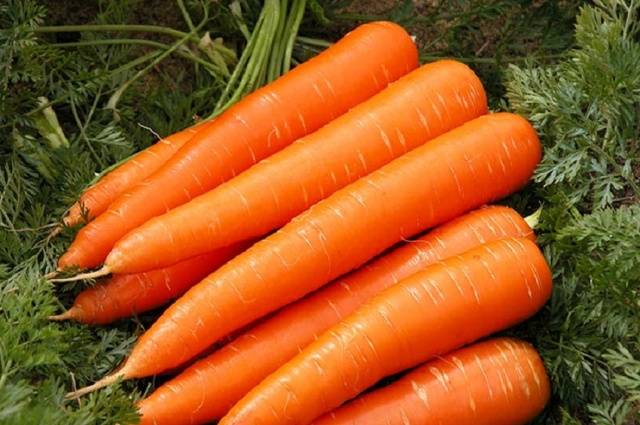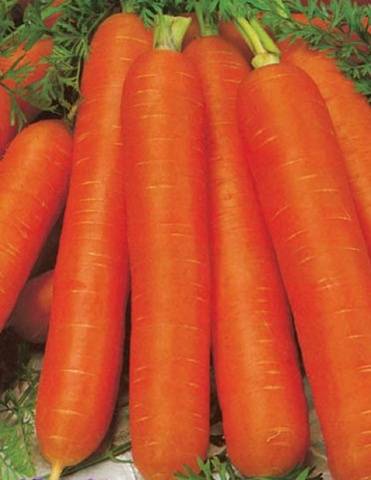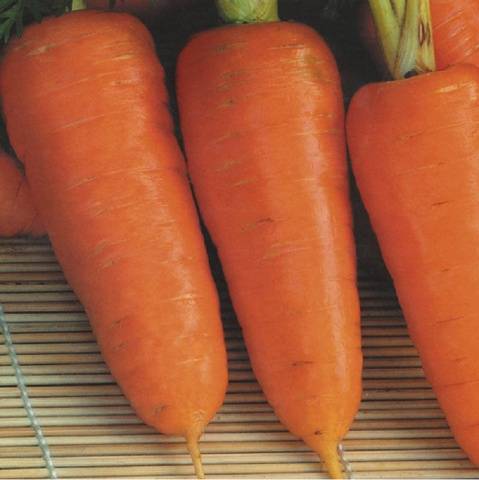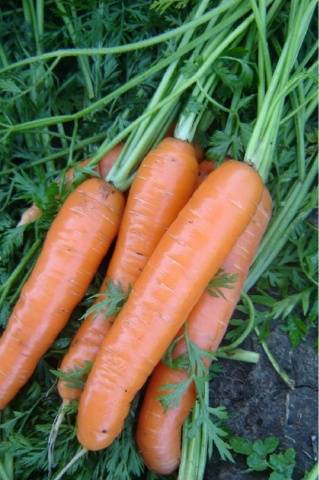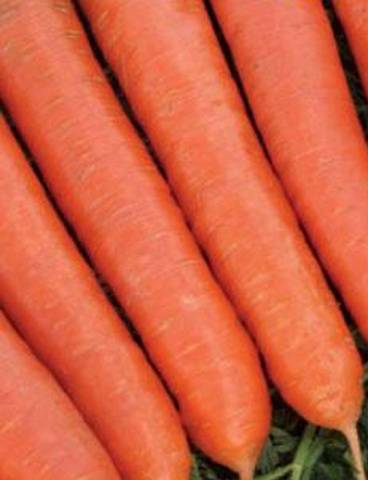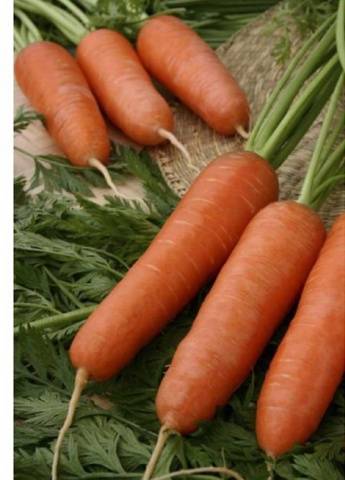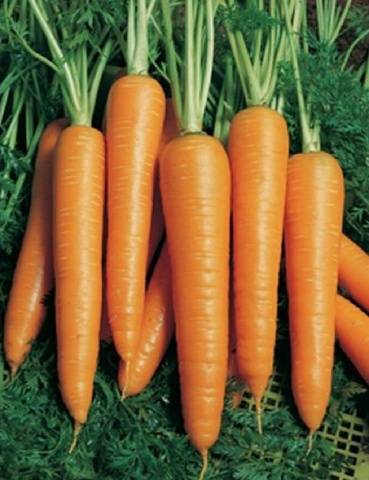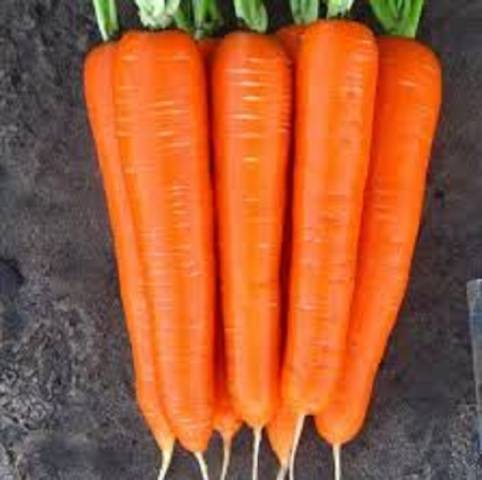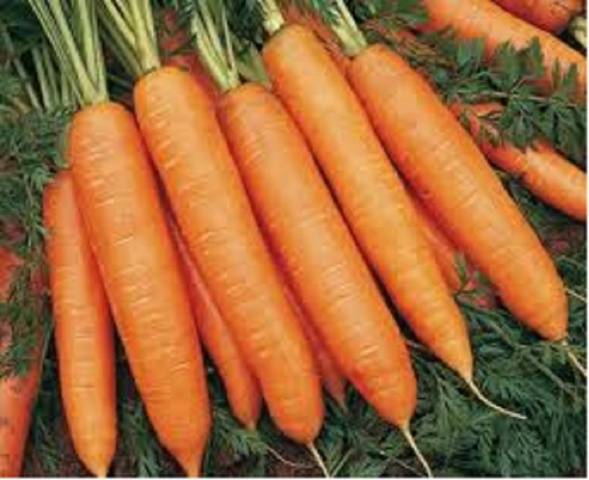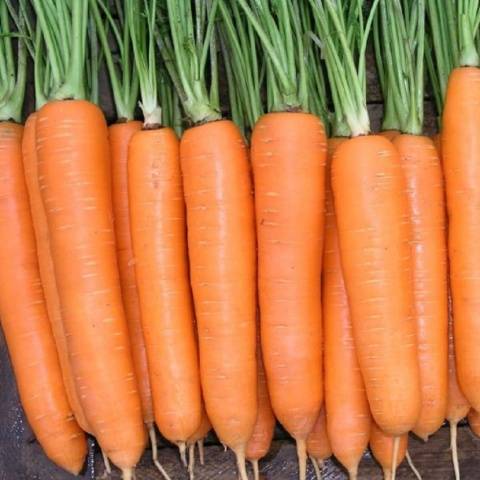Content
Everyone loves carrots. Not only to eat, but also to grow. This biennial plant is considered a highly profitable vegetable crop. Good yield allows you to grow root crops for fresh consumption, freezing, processing, harvesting, canning and storage. Many varieties do not lose their nutritional value and taste until early spring. In recent years, gardeners have preferred Dutch carrot seeds.
Dutch breeders are considered to be some of the best vegetable producers. Seeds of famous brands are distinguished by their versatility, fast and high-quality germination, and vegetables:
- high yield;
- disease resistance;
- excellent taste;
- high quality presentation.
Carrot varieties from Holland stand out among domestic seeds for their attractive appearance and juiciness. Carrots are grown in three types - early ripening, medium ripening and late. In addition, any of the types differs in:
- The shape and length of root crops.
- Yields.
- The content of vitamins, sugars and carotene.
In recent years, hybrids or hybrid seeds. These are species obtained by controlled crossing of two selected varieties. They are selected according to certain indicators that a hybrid should have. Main characteristics of hybrid carrot seeds:
- high percentage of germination;
- genetic similarity;
- unusual shape and color of fruits;
- high keeping quality and excellent presentation.
Hybrid seeds are bred to fully meet the needs of gardeners. This takes into account all the requirements that apply to a particular culture. For carrots, the germination rate is very important, because usually the seeds sit in the ground for a long time. Also the shelf life. Fresh root vegetables are extremely demanded in winter to replenish the body's supply of vitamins and carotene.
Agronomists believe that half of the harvest directly depends on the quality of the seeds. Dutch carrot seeds are considered to be the most productive and sustainable. The quality of the crop is not affected by weather conditions, the crop is almost not damaged by pests and tolerates drought or low temperatures without loss. The best of the Dutch manufacturers are considered such firms as Syngenta, Monsanto, Nunems. But, even the most proven varieties of carrots from Holland need to be sown into prepared soil, watered and loosened the soil, and observe the growth of plants. To determine the choice of a variety for your site, you should familiarize yourself with the list of the main names of Dutch carrots.
Early varieties
"The Bureau"
Super early Dutch carrot. The variety gained popularity for:
lack of core;
- harmonious appearance of root crops;
- great taste;
- plant resistance to shooting.
The first crop is harvested within 60 days after germination. This is the so-called bunch carrot, for its receipt the seeds are sown in March. Depending on the sowing time, the harvest is obtained from May to October. The variety is suitable for winter sowing (October – November). Root crops are completely immersed in the soil, have an even smooth surface, reach a length of up to 20 cm and a mass of 250 g. The color is intense orange. The peculiarities of the variety include disease resistance, high stable yield, storage capacity (up to 4 months). Seeds are sown to a depth of no more than 2.5 cm in grooves about 5 cm wide.The variety is demanding for competent watering. Needs its regularity and moderation. Designed for greenhouses and open ground.
"Red Cor"
Another early variety. Belongs to the Shantane type. The maturity of root crops occurs 70-85 days after the emergence of full shoots. Carrots with intense orange color, juicy pulp. The shape of the root crops is conical, the size is small (up to 15 cm). The plant's tops are strong and healthy. Recommended for early production and storage. In order for the root crops to withstand the winter period well, winter sowing should be carried out. For early harvest - spring. The advantages of the variety:
- high-yielding;
- high-quality presentation;
- excellent taste characteristics;
- resistance to shooting and disease;
- does not accumulate nitrates with proper fertilization.
Used fresh and for processing.
Medium varieties of Holland
"Campo"
Mid-season high-quality carrots from Dutch producers. Ripening period 100-110 days. Root crops are smooth, cylindrical, very attractive. They grow up to 20 cm in length and weigh 100-150 g. Orange pulp with excellent taste and high degree of juiciness. The variety is valued for:
- suitability for freezing and processing;
- resistance to shooting;
- the possibility of mechanical cleaning;
- high stable yield;
- good keeping quality.
Excellent taste, the variety is suitable for dietary nutrition.
"Romosa"
One of the highest yielding medium varieties. Harvesting is carried out 120 days after germination. Root crops are smooth and large with a pointed tip, reach a length of 23 cm and gain weight up to 250 g. Carrots are perfectly pulled out of the ground, which reduces the possibility of damage. The heart and flesh are one bright orange color. Features:
- resistance to cracking and breaking of fruits;
- keeps well (up to 8 months);
- yield is maintained on all types of soil (up to 6.5 kg / m2).
Sowing seeds is carried out from the end of April without soaking. All seeds are processed by the manufacturer. The planting depth is no more than 2 cm. Suitable for winter sowing, which is carried out from the end of October. Thinning of seedlings and weeding are mandatory. The variety does not tolerate stagnant water, therefore, it requires loosening and normalized watering. For long-term storage, it is necessary to observe the temperature regime and humidity in the room.
Mid-late and late "Dutch"
"Karini"
An excellent variety that retains its taste and marketability for a long time. It is appreciated for its high percentage of carotene content, pleasant taste, unpretentiousness to growing conditions. Technical ripeness occurs 115 - 130 days after germination. The mass of root crops ranges from 100 to 160 g, the average length is 15 cm. Suitable for fresh use, canning, freezing and processing. The pulp is rich orange. The yield reaches 3.8 kg per 1 sq. m landing area.
Vita Longa
A well-known mid-late, high-yielding variety that is loved by many gardeners. "Vita Longa" is known for its keeping quality, preservation of taste and nutritional qualities during storage. It grows well on any soil without fear of reducing yields. Proper feeding helps to increase the number of root crops. The variety has good resistance to diseases and pests, which makes it very profitable when grown in small areas.
Root crops do not crack, retain their presentation for a long time. Excellent taste, high carotene content, juicy pulp make the variety very popular. Fruit length 25-30 cm, weight 250 g. Technical maturity occurs 115 days after germination. The crop is harvested from mid-July to October, depending on the sowing date. Seeds are sown according to the scheme 20x4 cm, the seeding depth is 2 cm.The yield of the variety is up to 7 kg per 1 sq. M.
Dutch breeding hybrids
Among Dutch carrots, hybrids are highly valued. This is due to the set of qualities that root crops have. There are a lot of popular species, so hybrid carrot varieties have their own catalogs and a detailed description.
"Laguna F1"
An early ripening hybrid with a cylindrical shape of root crops. Variety type Nantes. Technical ripeness occurs in 80 days. The pulp is rich orange color with very small core... The fruits are 18-20 cm long and cylindrical. The average weight of one carrot is 135 g. Seeds are sown according to the 15x4 cm scheme with a depth of up to 2 cm. He loves loose sandy soil with good lighting. The advantages of the variety:
- disease resistance;
- excellent taste;
- suitability for baby and diet food;
- good yield (6.8 kg per 1 sq. m).
Designed for outdoor cultivation. It is consumed fresh.
Bangor F1
Mid-season high-yielding hybrid (Berlikum cultivar). The crop is harvested 110 days after full germination. It is considered the most productive. Root crops are heavy (up to 400 g), long (22 cm) with a blunt tip. They have excellent taste and pleasant color.
Carrots are distinguished by a high percentage of carotene, suitability for mechanical harvesting and long-term storage. Suitable for fresh consumption, freezing, processing and canning. The hybrid is very resistant to diseases, blooming, cracking and brittleness. The peculiarity of the variety is that before sowing, it is imperative to moisten the soil well and not thicken the plants. Demanding to loosening, watering and nutrition. It is considered a versatile hybrid for regions with warm climates.
"Coltan F1"
One of the new hybrids of late ripening (up to 140 days). Belongs to the Flakkian-Nantes type. It is intended for fresh use and processing, it is well stored. Root crops are even, heavy (up to 200 g) and long (22 cm). The shape of the roots depends on the planting density. With a sparse density, they have a conical shape, with a high density - a cylindrical shape. Features of the hybrid:
- excellent resistance to Alternaria and downy mildew;
- good keeping quality (up to 7 months);
- high percentage of carotene content;
- the possibility of mechanized harvesting;
- sustainable fruiting on all types of soil.
Growing recommendations - sowing is carried out on the ridges.
Conclusion
Dutch carrots give an excellent harvest, subject to growing technology. This is especially important on large areas and on farms. All varieties exactly correspond to the description, have excellent taste and presentation. Growing carrots of Dutch varieties is easy enough even for novice gardeners.
